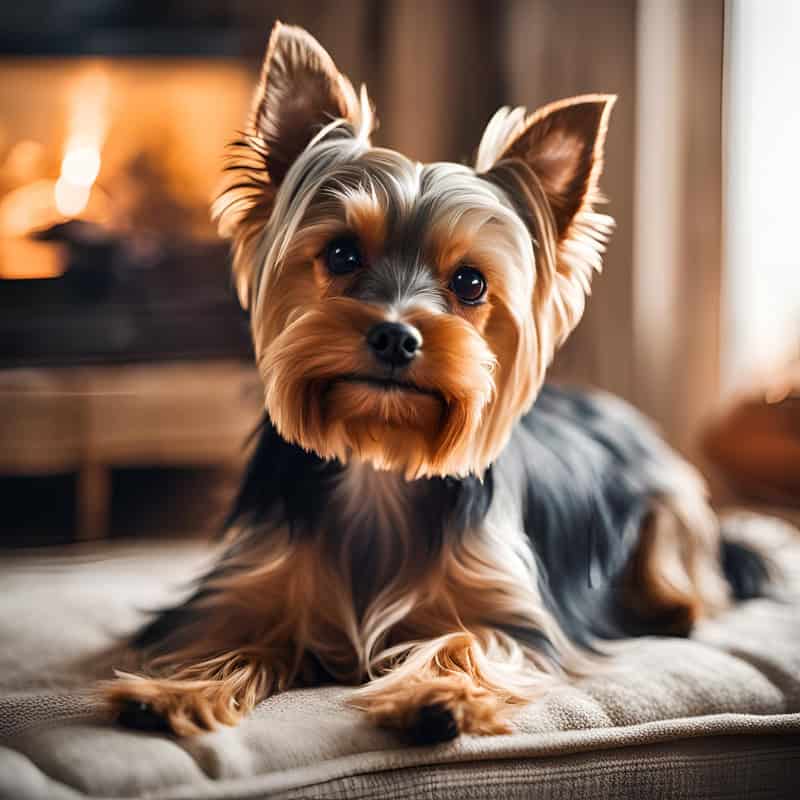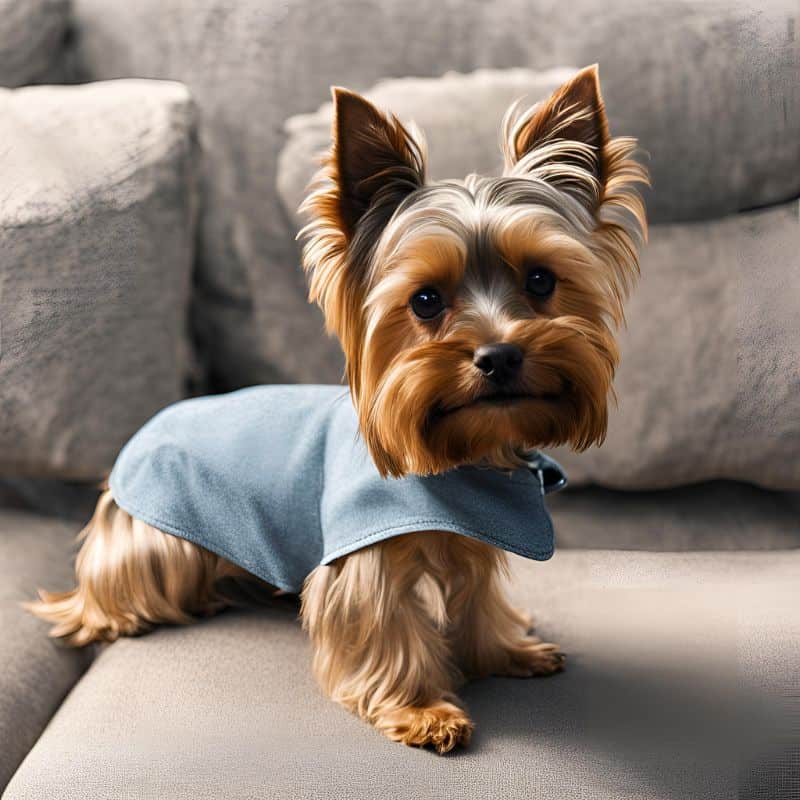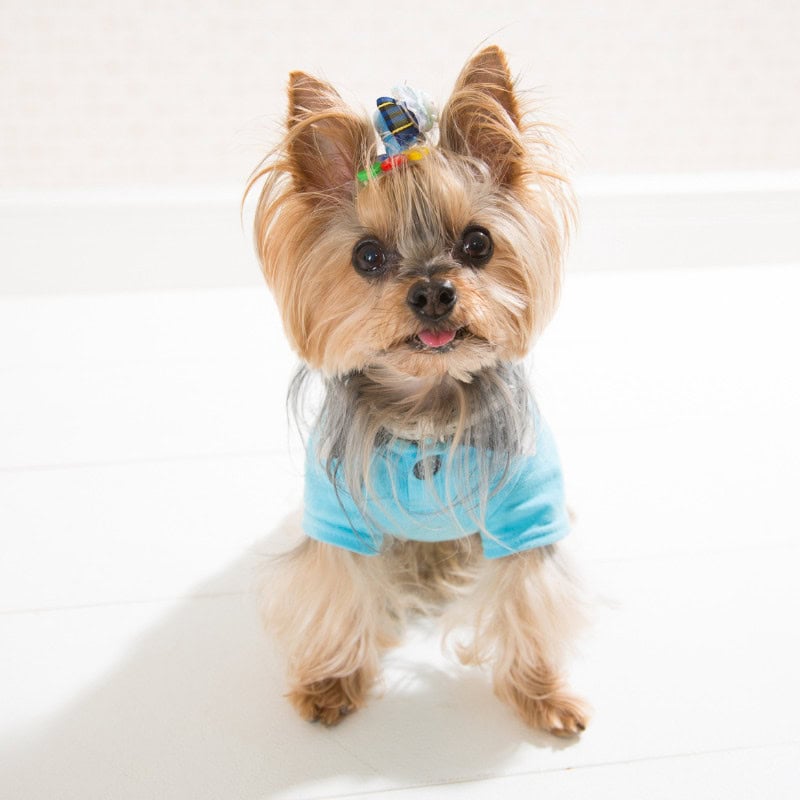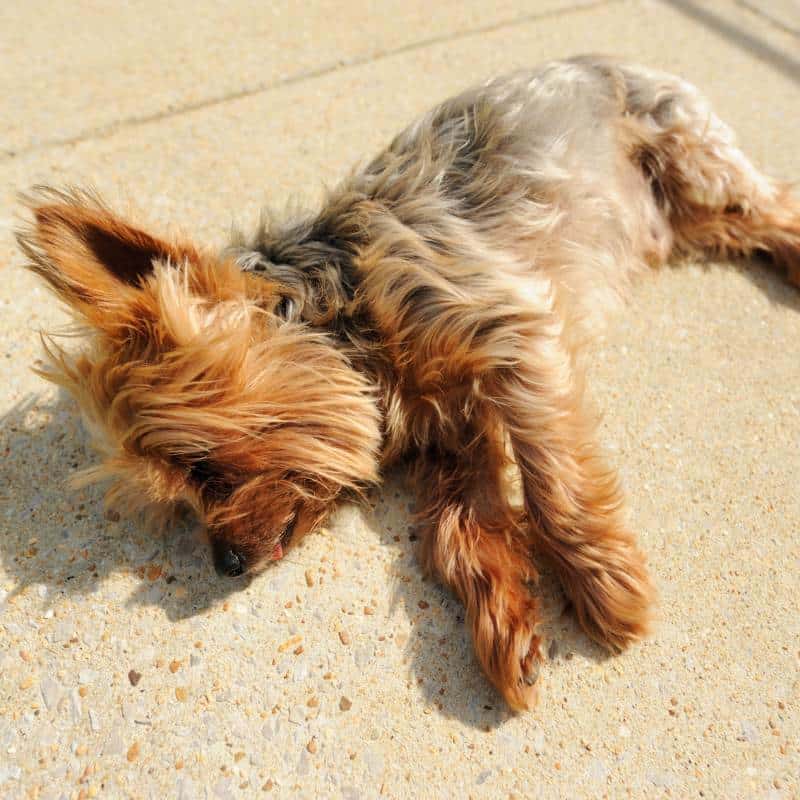Blog
Yorkshire Terrier Scooting: How To Stop Your Dog Doing That?

If you’ve caught your Yorkshire Terrier scooting across the floor like they’re trying to wipe their little behind on the carpet, you’re not alone. This behavior, while comical at times, is a sign that something is bothering your dog. It’s important to understand what’s going on and how you can help your beloved Yorkie stop scooting and feel more comfortable.
Seeing your Yorkie scratching his bum onto the ground is not only uncomfortable to look at but also quite nasty.

Why Do Yorkshire Terriers Scoot?
Scooting usually happens when your Yorkie feels irritation or discomfort around their rear end. It’s their way of trying to relieve that itch, pain, or pressure. While it might look funny (or embarrassing when guests are over), it signals that your pup needs some help.
Here are the most common reasons behind Yorkshire Terrier scooting:
1. Anal Gland Issues
One of the top culprits of scooting is anal gland problems. Your Yorkie’s anal glands are tiny sacs near their rectum that release a smelly fluid whenever they poop. This fluid helps mark territory. Sometimes, these glands don’t empty properly and become clogged or even infected.
- Signs of anal gland problems: Besides scooting, your Yorkie may lick their rear end excessively, have a foul odor, or even cry when sitting or pooping.
- What to do: If you suspect impacted anal glands, a vet or groomer can express them manually. You can also add more fiber to your dog’s diet to promote healthy bowel movements.

2. Worms or Parasites
A common cause of Yorkie scooting is worms, especiallytapeworms. These parasites can cause itching and irritation around the anus, leading to scooting.
- How to spot worms: Check your dog’s poop or bedding for small, rice-like segments (a sign of tapeworms). Other symptoms include weight loss and a poor coat condition.
- How to treat worms: Consult your vet for a proper deworming treatment. Regular use of parasite preventatives can keep your Yorkie worm-free.
3. Skin Irritations or Allergies
Yorkies are prone to skin allergies that can lead to irritation around their rear end. Food allergies, environmental allergens like pollen, or even grooming products can be to blame.
- Symptoms: Redness, swelling, or rashes near the tail or anus. This means that you should immediately check your dog’s foodand search for an ingredient that cause his bum to feel itchy.
- How to help: Identify the allergen causing the issue. Switching to a hypoallergenic diet, using soothing shampoos, or consulting your vet for allergy medications can work wonders. In case your dog severely rubs his bum onto the ground, then you can dress him into cotton pants for dogs. We think of those female dogs wear when they’re in heat. They can pick up the excess oils, or some other irritants from your dog’s anal gland and make him/her feel more comfortable. However, make sure they’re made of cotton fabric.
4. Dietary Issues
A poor diet or lack of fiber can cause soft stools that don’t naturally help express the anal glands, leading to scooting. Your Yorkie may also scoot if their food contains ingredients they’re sensitive to.
- Signs of dietary issues: Diarrhea, inconsistent stools, or frequent gas. If your Yorkie eats too much fiber or fruit, then he’s bum is probably red and itchy because of that. That’s why it’s extremely important to feed your Yorkie with well-balanced meals that contain the right amount of proteins and carbohydrates.
- Solution: Opt for high-quality dog food with sufficient fiber. Adding natural fiber sources like canned pumpkin or green beans can also help.
5. Fecal Matter Stuck to Fur
This one is a simple hygiene issue. Sometimes, especially in long-haired Yorkies, poop can get stuck in their fur and cause discomfort. Your dog might scoot in an effort to clean themselves.
- What to do: Regular grooming and keeping the hair around your Yorkie’s bottom trimmed short can prevent this problem. A quick wipe after they poop can also help. You should never use wet wipes that contain alcohol because they can only irritate your dog’s skin.
READ ALSO: How to Solve Yorkshire Terrier Dry Skin: A Complete Guide
6. Rectal Prolapse or Injuries
In rare cases, your Yorkie scooting could be due to a more serious issue like a rectal prolapse or injury. This can happen after severe diarrhea or constipation and requires immediate veterinary attention. Just like humans, dogs can suffer from hemorrhoids which can be a problem with bowel movements. If your yorkie has blood in its stool, it should be treated immediately with special creams and medications.
- Signs: A visible red or pink bulge near the anus, difficulty pooping, or signs of pain.
- Action: Take your Yorkie to the vet right away if you suspect a prolapse or injury.
7. Full or Partial Constipation
Constipation can make your Yorkie uncomfortable, leading to scooting as they try to relieve the pressure. This might happen if your dog isn’t drinking enough water, has an unbalanced diet, or swallows something they shouldn’t (like a sock or toy).
- How to spot it: Straining to poop, hard or dry stools, and a bloated abdomen.
- How to fix it: Ensure your dog stays hydrated, and include fiber in their diet. For immediate relief, consult your vet about using a safe laxative.

How to Stop Yorkshire Terrier Scooting?
Once you’ve identified the cause, you can take steps to treat and prevent your Yorkshire Terrier scooting in the future. Here are some practical tips:
Regular Grooming and Hygiene
- Keep your Yorkie clean: Regular bathing with a gentle shampoo can reduce irritation. Pay extra attention to the area under your dog’s tail. In case you’re not sure which shampoo to choose for your Yorkie, then we recommend you to read our blog post: How to choose the right shampoo for your Yorkie?
- Trim fur around the rear: Long-haired Yorkies are more likely to have hygiene issues. Keeping this area tidy can prevent discomfort.
High-Quality Diet to Solve Yorkshire Terrier Scooting
- Feed the right food: Choose a dog food that’s high in protein and includes sufficient fiber. Look for brands specifically formulated for small breeds like Yorkies.
- Supplement with fiber: Adding small amounts of pumpkin or psyllium husk to your dog’s food can help regulate their bowel movements.
Regular Vet Visits
- Routine check-ups: Schedule annual or bi-annual visits to your vet to ensure your Yorkie is healthy and parasite-free.
- Stay updated on deworming: Follow a regular schedule for parasite prevention to protect your dog from worms.
Monitor for Allergies
- Switch to hypoallergenic products: Use shampoos and grooming products free of harsh chemicals. Consider switching to a limited-ingredient dog food if food allergies are suspected.
- Address environmental allergies: If pollen or dust mites are the problem, discuss allergy medications or treatments with your vet.
Exercise and Hydration
- Encourage activity: Regular walks and exercise promote healthy digestion and prevent constipation.
- Provide fresh water: Always keep a bowl of clean water available to keep your dog hydrated.
DIY Home Remedies For Yorkshire Terrier Scooting
If your Yorkie scooting isn’t caused by a serious issue, some home remedies may help:
- Wipe with baby wipes: Unscented baby wipes can soothe minor irritation and clean the area.
- Apply coconut oil: A small amount of coconut oil can moisturize and reduce inflammation.
- Use a warm compress: A clean, warm washcloth applied to the area can provide comfort.
When to See the Vet When Your Yorkie is Scooting
Sometimes, even with your best efforts, your Yorkie might keep scooting. If this happens, don’t hesitate to consult your vet. Signs that warrant a vet visit include:
- Persistent Yorkshire Terrier scooting that doesn’t improve
- Blood, swelling, or discharge around the anus
- Signs of pain, lethargy, or loss of appetite
- A foul smell that won’t go away
Your vet will perform an examination and may recommend treatments like expressing the anal glands, prescribing antibiotics, or addressing any underlying health issues. When the bad smell is present, your vet will also take a swab from the anal gland to check for bacteria and parasites.

Yorkshire Terrier Schooting: Wrapping Up
While Yorkshire Terrier scooting can be embarrassing or annoying, it’s usually a sign of an underlying problem that’s easily treatable. By staying on top of your Yorkie’s grooming, diet, and health needs, you can help them stay happy, comfortable, and scoot-free.
Your little pup is counting on you to keep them healthy, so don’t ignore the signs. Whether it’s a quick trip to the vet or a change in diet, a little effort goes a long way in keeping that Yorkie booty off your carpet!
Do you have any tips or tricks for dealing with a scooting Yorkie? Share your experience in the comments below!
READ ALSO: Yorkshire Terrier Legg-Calve-Perthes Disease: How To Treat It?
